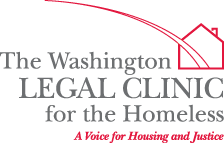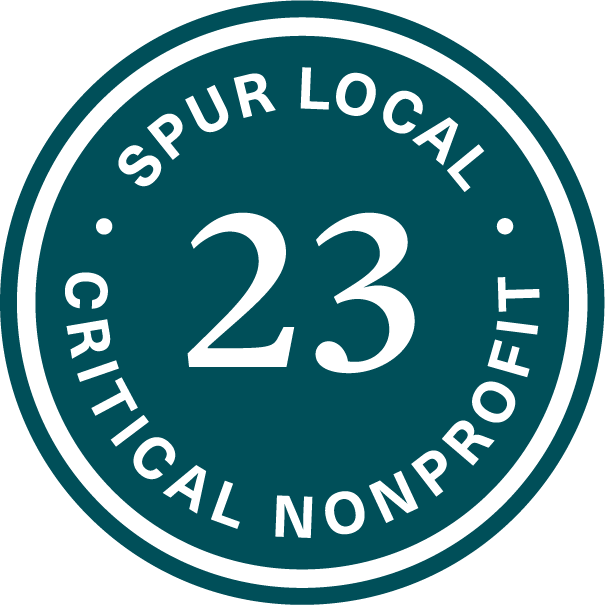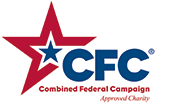Echoing the FY23 Fair Budget Coalition platform call for DC officials to view this year’s budget process as an ‘Act of Justice,’ the Legal Clinic is entering this budget season with a focus on housing justice. Despite living in a well-resourced District of Columbia, DC residents are facing homelessness, housing instability, and crisis-level lack of affordable housing every day, so there is much work to be done to address these issues in DC in order to further housing justice. The budget process is an opportunity to do just that. Outlined below are the funding and reform priorities that Legal Clinic staff and advocacy allies will focus on in 2022. The Legal Clinic is an active member of the Fair Budget Coalition and the Way Home Campaign, and our spending priorities for the FY23 DC budget are developed in collaboration with these coalitions.
Homelessness
Encampments
The Bowser Administration has escalated its efforts to clear and remove encampments despite CDC guidance to suspend all encampment clearings. (“Clearing encampments can cause people to disperse throughout the community and break connections with service providers. This increases the potential for infectious disease spread.”) The CARE pilot, which increased clearings and established “no tent” zones, is inhumane, dangerous, and prompted at least in part by complaints from housed residents about the presence of people who are homeless in their neighborhoods. The solution to street homelessness is housing, not further displacement.
Our Ask:
Immediately suspend the CARE pilot and all full encampment clearings now and after the pandemic. Instead, conduct trash-only clearings, provide additional trash cans at encampments, and maintain portable bathrooms and hand washing stations after the end of the pandemic.
Budget impact: DC could save money by ending clearings.
Protections from COVID-19
Many people experiencing homelessness have been medically determined to be at high risk of dying of COVID-19 and need a safe placement in a hotel – in DC this program is called the Pandemic Emergency Program for Medically Vulnerable Individuals (PEP-V). (They are at greater risk of contracting and dying of COVID-19 because they live on the street or in a congregate shelter and are older or have serious medical conditions.) The federal government is paying 100% of costs for PEP-V through April. Right now, there are hundreds of vacancies in PEP-V, while hundreds of eligible people wait to be placed. In January, we sent a letter on behalf of over 35 organizations, asking the Bowser Administration to lower barriers to PEP-V, including removing the requirement that residents be matched to permanent housing. We also asked that DC maintain COVID-19 mitigation measures consistently to be prepared for a new variant. Finally, it is concerning that DC has decided to no longer report COVID-19 cases publicly for subpopulations, including people experiencing homelessness.
Our Ask:
Maintain mitigation measures and public reporting of cases. Lower barriers to PEP-V. Require PEP-V programs to comply with the Homeless Services Reform Act, including critical due process protections. Use local dollars to sustain PEP-V if the federal money lapses.
Budget Impact: TBD.
Emergency shelter system for single adults
Most singles shelters are large, congregate spaces with poor conditions. Several of them are slated for redevelopment or replacement. Last year, Mayor Bowser dedicated $50 million in federal funds to buying a hotel and converting it to bridge or permanent housing. We believe that DC should learn from the pandemic and convert more of its shelters into humane, private spaces where people are less likely to contract diseases.
Our Ask:
Explore redeveloping more hotels and other spaces into humane, private shelter spaces for individuals.
Budget Impact: TBD
Emergency shelter system for families
The Department of Human Service (DHS) is operating a family shelter intake system that is high barrier, leaving many vulnerable families in unsafe settings, risking their health and lives. Intake workers regularly unlawfully deny eligibility to families, requiring extensive documentation of homelessness in violation of the Homeless Services Reform Act (HSRA) and refusing to provide lawful notices of ineligibility when denied services.
Our Ask:
Amend the Homeless Services Reform Act to require a low barrier, humane family shelter eligibility process.
Budget Impact: N/A
Housing subsidies and vouchers
There are 40,000 households on the DC Housing Authority waiting list and it has been closed since 2013. The vast majority of people experiencing homelessness need permanent assistance to maintain housing stability. Additionally, due to the pandemic and recent laws providing for more opportunities for release, there is an urgent need to fund housing for DC residents returning home from incarceration.
Our Ask:
Better oversight of both DHS and DC Housing Authority to reduce bureaucracy that can cause delays in renting units with vouchers. Drastically increase funding to permanent voucher programs and extend the Reentry Housing Pilot.
Budget Impact:
- $12.05 million for Permanent Supportive Housing for 260 families,
- $13.88 million for Permanent Supportive Housing for 500 individuals,
- $27.72 million for Targeted Affordable Housing for 1040 families,
- $17.33 million for 800 Local Rent Supplement Program (LRSP) Tenant Vouchers,
- $1.3 million for 60 LRSP Tenant Vouchers for returning citizens,
- $1.8 million for the third and final year of the Reentry Housing Pilot, providing housing and services for 50 returning citizens, and
- $700,000 for Project Reconnect for 400 individuals.
Fair standards for tenant applications
Even when affordability of housing is no longer a barrier, people often struggle to get housing because of exorbitant fees or irrational denials based on credit history, rental history (including eviction records), or criminal history. DC is making great strides towards reducing these barriers to housing, most recently in the passage of the Eviction Record Sealing Authority and Fairness in Renting Amendment Act of 2022. Some of the law is already in effect, but the remainder needs funding before it can go into effect. In addition, we urge the Council to pass the Human Rights Enhancement Amendment Act of 2021, which adds homelessness to the DC Human Rights Act as a protected class.
Our Ask:
Pass and fund the Human Rights Enhancement Amendment Act of 2021 and fund the Eviction Record Sealing Authority and Fairness in Renting Act so that housing applicants can fully enforce their legal rights.
Budget Impact: Estimated $1 million to Office of Human Rights for enforcement. (The cost for FY22 for the Eviction Record Sealing bill is $446,319.)
Housing Instability
Rapid re-housing
Rapid Re-housing is a time-limited rental subsidy program. Families are regularly terminated at the end of an arbitrary time period even though they cannot afford the rent on their own, destabilizing families and causing eviction, homelessness, and other trauma. 3400 families are in this program right now, but 913 families are slated for termination this year for a time limit, even though the Mayor admits that 90% of the families will not be able to afford rent on their own. (The program for single adults faces similar challenges but is much smaller in scope.)
Our Ask:
Extend all families in RRH through this fiscal year and until there are enough permanent housing subsidies to support those who need it. Amend the HSRA to prohibit time limit terminations when families are unable to afford the rent on their own. Shift resources away from RRH into more permanent subsidies over time.
Budget Impact: Extend families in program through FY22 (amount TBD) and exit to permanent housing subsidies (see above).
Relief for rent and utility costs
The pandemic and associated economic recession have put tens of thousands of DC residents into economic crisis, unable to pay critical utilities or rent. The moratorium on evictions and utility shut offs was key to preventing a serious humanitarian crisis, as was the significant infusion of federal and local funds for rent and utility relief. But now, with all moratoria lifted, DC must ensure that there is adequate relief funding to prevent continued harm.
Our Ask:
Ensure residents can access sufficient funds to pay back rent and utility arrears to prevent massive displacement, trauma, and homelessness.
Budget Impact: Rent relief: 1) an additional $187 million in FY22 and 2) a minimum of $200 million for FY23. Utility relief: TBD for FY22 and FY23.
Affordable Housing Crisis
Public housing
For decades, DC public housing residents have complained about the deplorable conditions and dilapidated buildings in which they have been forced to reside. Due to years of disinvestment and neglect, these properties are in extreme disrepair. Currently, the DC Housing Authority is in the process of executing a large-scale public housing ‘transformation’ process that will demolish and/or renovate several public housing properties. While the transformation plan is certainly about building restoration, it must fundamentally center the residents whose homes are within those buildings, now and in the future.
Our Ask:
Commit to a recurring $60 million for a minimum of ten years that will address the substantial preservation, rehabilitation, and redevelopment needs of DC’s public housing properties. Support the Public Housing Preservation and Tenant Protection Amendment Act of 2020 and include its language in the Budget Support Act (BSA) to memorialize DCHA’s stated commitment to its residents, ensuring that public housing residents can rightfully access the housing that is intended for them upon any property redevelopment or transformation.
Budget Impact: $60 million annually.
Building new affordable housing
DC continues to have an affordable housing crisis that threatens thousands of its residents. In particular, there is a dearth of deeply affordable housing in DC. The Housing Production Trust Fund (HPTF) is the fundamental source for creating and preserving affordable housing in DC. Despite this fact, deeply affordable housing for those at 0-30% Area Median Income (AMI) continues to be the most underproduced in DC. The Office of the D.C. Auditor extensively documented the failures of the Department of Housing and Community Development (DHCD) to meet the HPTF’s statutory requirements over the life of the HPTF. In FY2020, despite an overall increase in the HPTF and a change requiring that fifty percent (50%) of the fund be used for 0-30% housing creation, only eighteen percent (18%) of the fund was used to create housing for that income level. Most recently, the Inspector General detailed that $82 million of the HPTF money meant for 0-30% AMI was misspent in 2020. For FY21, DHCD originally projected that a mere 27% of funds would be used for 0-30% AMI. Current data seems to indicate a failure to meet its own meager projected percentage.
Our Ask:
Replace the $82 million that was found to have been misspent or misappropriated from 0-30% AMI portion of the HPTF in FY20. Maintain sufficient operating funding investment so that the full amount of 0-30% AMI affordable housing creation can be built. Increase and improve Council oversight. Pass the Housing Production Trust Fund Income Targeting Accountability Amendment Act of 2021 and the Housing Production Trust Fund Transparency Amendment Act of 2021, important pieces of legislation that increase transparency and reporting requirements. Create additional legislative protections and enforcement to ensure that money meant for 0-30% AMI affordable housing creation is used as intended.
Stay tuned for an assessment of how fully the Mayor’s proposed budget meets our funding asks.





